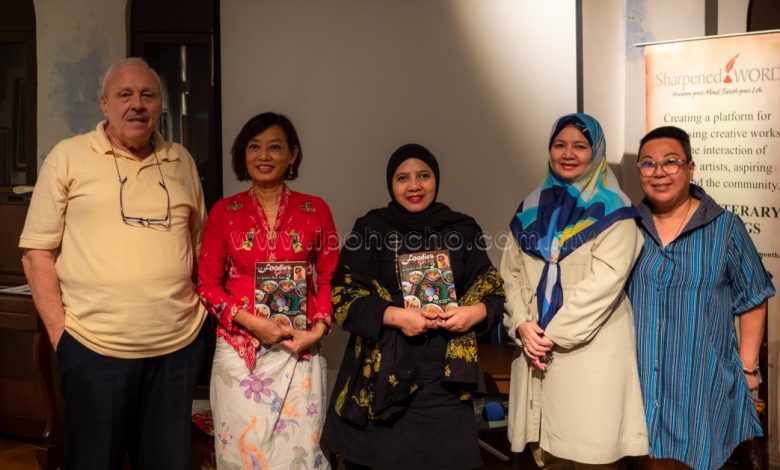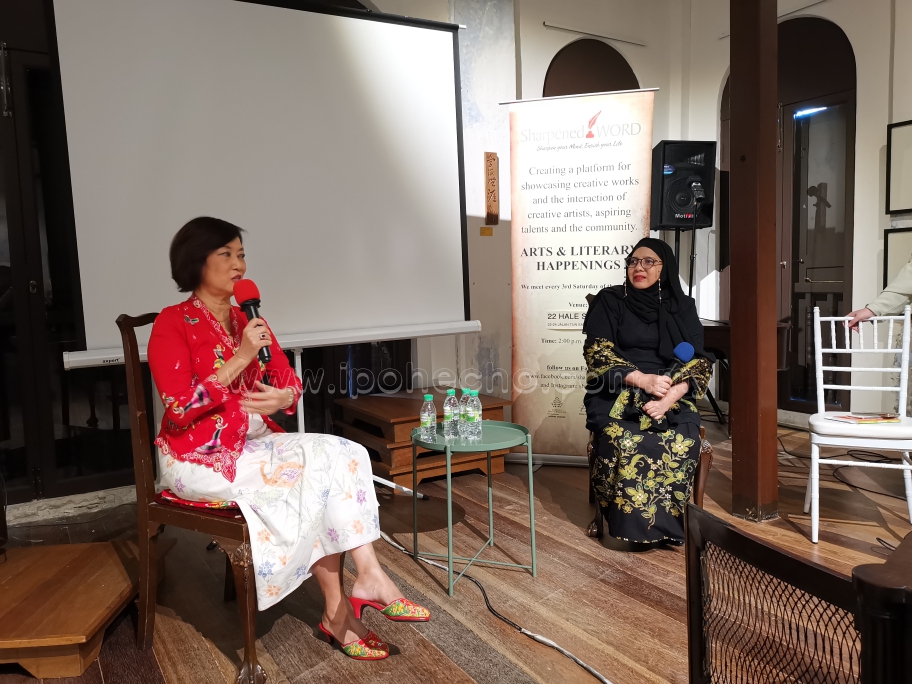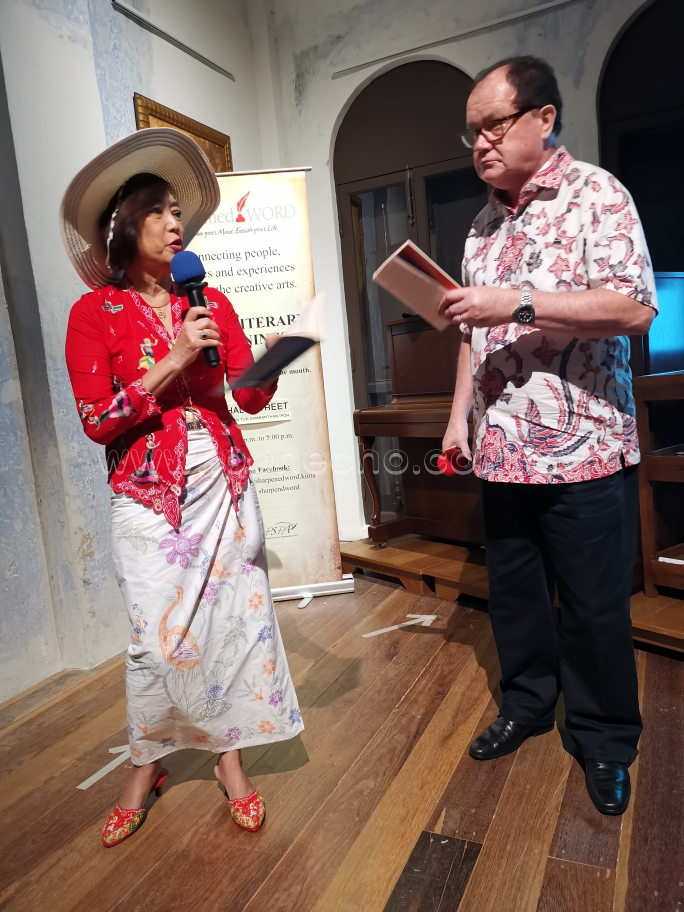Instil Love for Literary Arts at a Young Age


In conjunction with Malaysia Day celebration, the September session of Sharpened Word (SW) hosted an evening at 22 Hale Street on Saturday (September 26) with authors Dr Lee Su Kim and Ninot Aziz.


Dr Lee, a Nyonya, is the award-winning and bestselling author of both the first and 2019 (second, co-written with Prof. Stephen J. Hall) editions of the well-known ‘Manglish: Malaysian English at Its Wackiest’ book, and ‘Kebaya Tales: Of Matriarchs, Maidens, Mistresses and Matchmakers’ book series.
According to Dr Lee, the 2019 edition of Manglish has 30 percent more new content.
Tasmania-born Ninot, raised in Temerloh, Pahang, is the author of multiple anthologies and young-adult novels, such as ‘From the Written Stone: An Anthology of Malaysian Folklore’, ‘Hikayat: From the Ancient Malay Kingdoms’, ‘Srikandi’, ‘Kirana: Dreams After the Rose’ and many more.
‘Hikayat’ is a form of Malay literature, usually relating to adventures of national heroes from ancient Malay kingdoms or royal chronicles.
With ‘Nation Building’ as the theme of the SW session this month, both Dr Lee and Ninot opined that more people need more exposure and love for the arts to be instilled.
“The thing with the youths today is that their interest lies more on smartphones and mainstream trends, like Korean and Western culture.


“Legendary tales like Hikayats are our heritage and history. They deserve to be kept alive because they entail a very large part of our identity”, she expressed.
“For the youths or even children to come to love literary art forms like Hikayats, not only role models are important; we, as parents and educators need to share what we know of legendary stories like such from time to time, so as to not let children or students to forget their national identity,” Ninot posited.
“If the newer generation knows what stories to share with their younger audience, I’m already more than content and satisfied,” she conveyed.
Dr Lee shared a similar sentiment. She said that love for the written arts need to be instilled from a young age.
“Growing up in a Peranakan family, I had plenty of things to look up to, which are written into Kebaya Tales. In ‘Manek Mischiefs: Of Patriarchs, Playboys and Paramours’ for example, one of the stories, ‘Kueh Brothers’ is based on my maternal grandmother’s gutsy and courageous life experiences, although I never got to know her,” she explained.
“See, this is where my passion lies. I love writing stories based on real-life experiences, and all the more, to showcase my Peranakan heritage.
“Besides that, I also love to make people laugh and feel good about themselves. Thus, ‘Manglish’, in which literally every single Malaysian can relate to, is the best material for me to do so,” Dr Lee added.
“We really have something to be proud of because not all words or phrases in Manglish can be translated directly into English equivalents, and they’re exclusively mutually understood by us (Malaysians).
“If we attempt to speak Manglish in front of non-Malaysians or foreigners, question marks will be raised!” she quipped.
“I remember once that a friend of mine from overseas came to visit Malaysia and I called someone ‘Ah Boy’ in front of her. My friend told me that calling ‘Ah Boy’ is derogatory in her culture!” she further reminisced light-heartedly.
“All I want to say is that our exclusive conversation technique is something to learn and to have fun with,” Dr Lee added. “Besides, Malaysia’s unique multiculturalism is worth to be taken with pride and be celebrated.”


“I would like to have a bottle of beer, please.”
“Yes, can, can.”
“No, a bottle of beer.”
“Sure, can, can.”
The above was part of skits performed by Dr Lee and Prof. Stephen, depicting the funny and wacky instances of daily conversations in Manglish among Malaysians.
Both Dr Lee and Ninot’s books are available online at MPH Online and Google Books.
“Part of proceedings from sales of my books will go to Perak Women for Women (PWW) Society, as a means to assist whomever is struggling during these tough times due to COVID-19,” Dr Lee mentioned.
Asked what criterias are needed to publish another edition of Manglish, she said, “Hopefully, I won’t have to wait for 20 years like I did between the first and second editions.
“Besides, language is evolving at a much faster pace today compared to yesteryears. However, it’s also subject to the birth of a new generation (and what words will be made popular by them in the future),” she told Ipoh Echo.
For more information, go to Sharpened Word’s Facebook page.
Stay tuned for the next session of SW in October. Hint… something spooky is coming.
Chris Teh


